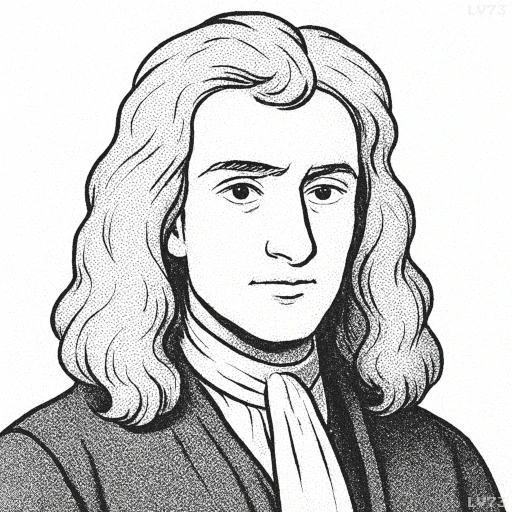“‘God’ is a relative word and has a respect to servants, and ‘Deity’ is the dominion of God, not over his own body, as those imagine who fancy God to be the soul of the world, but over servants.”

- January 4, 1643 – March 31, 1727
- Born in England (UK)
- Natural philosopher, mathematician, physicist, astronomer, theologian
table of contents
Quote
“‘God’ is a relative word and has a respect to servants, and ‘Deity’ is the dominion of God, not over his own body, as those imagine who fancy God to be the soul of the world, but over servants.”
Explanation
In this quote, Isaac Newton is reflecting on the nature of God and deity in relation to human understanding. He suggests that the term “God” is inherently relational, meaning it refers to a relationship between a divine figure and servants, or those under divine authority. For Newton, God’s dominion, or “Deity,” is not about a metaphysical connection between God and the universe itself (such as the idea that God is the soul of the world), but rather about God’s rule over beings or servants who are subject to His will. Newton seems to be distancing himself from the pantheistic idea that God is the soul of the world or synonymous with the universe itself, a concept held by some philosophers and thinkers of his time. Instead, he views God’s dominion as being over created beings, those who are subject to God’s laws and will, rather than over the material world in an intrinsic or immanent sense.
Newton’s view reflects his theological perspective, where God is distinct from the creation and acts as a sovereign ruler over the universe and everything in it. This is a traditional view within monotheism, where God is seen as an external creator who governs the universe but is not identical to it. Newton’s rejection of the idea that God is the soul of the world points to his belief in a personal, transcendent God, rather than a pantheistic or immanent view of divinity.
In modern discussions, this quote touches on theological debates about the nature of God and pantheism. While Newton’s belief aligns with a classical theistic view of God as separate from the world, contemporary religious and philosophical discussions still explore the balance between the transcendence and immanence of God. Newton’s statement about God’s dominion over servants emphasizes the distinction between the divine and the created world, underscoring the idea that God’s sovereignty is exercised over beings who are subject to divine will, rather than over the world itself in a pantheistic sense.
Would you like to share your impressions or related stories about this quote in the comments section?

